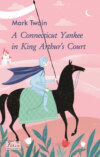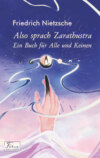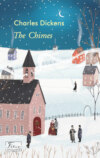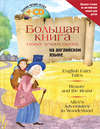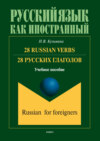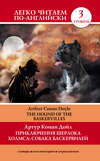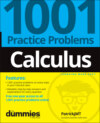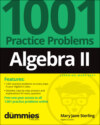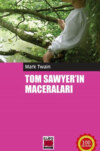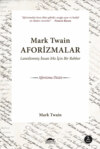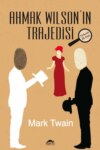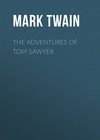Kitabı oku: «A Connecticut Yankee in King Arthur’s Court», sayfa 3
Chapter VI
The Eclipse
In the stillness and the darkness, realization soon began to supplement knowledge. The mere knowledge of a fact is pale; but when you come to realize your fact, it takes on color. It is all the difference between hearing of a man being stabbed to the heart, and seeing it done. In the stillness and the darkness, the knowledge that I was in deadly danger took to itself deeper and deeper meaning all the time; a something which was realization crept inch by inch through my veins and turned me cold.
But it is a blessed provision of nature that at times like these, as soon as a man’s mercury has got down to a certain point there comes a revulsion, and he rallies. Hope springs up, and cheerfulness along with it, and then he is in good shape to do something for himself, if anything can be done. When my rally came, it came with a bound. I said to myself that my eclipse would be sure to save me, and make me the greatest man in the kingdom besides; and straightway my mercury went up to the top of the tube, and my solicitudes all vanished. I was as happy a man as there was in the world. I was even impatient for to-morrow to come, I so wanted to gather in that great triumph and be the center of all the nation’s wonder and reverence. Besides, in a business way it would be the making of me; I knew that.
Meantime there was one thing which had got pushed into the background of my mind. That was the half-conviction that when the nature of my proposed calamity should be reported to those superstitious people, it would have such an effect that they would want to compromise. So, by and by when I heard footsteps coming, that thought was recalled to me, and I said to myself, “As sure as anything, it’s the compromise. Well, if it is good, all right, I will accept; but if it isn’t, I mean to stand my ground and play my hand for all it is worth.”
The door opened, and some men-at-arms appeared. The leader said:
“The stake is ready. Come!”
The stake! The strength went out of me, and I almost fell down. It is hard to get one’s breath at such a time, such lumps come into one’s throat, and such gaspings; but as soon as I could speak, I said:
“But this is a mistake – the execution is to-morrow.”
“Order changed; been set forward a day. Haste thee!”
I was lost. There was no help for me. I was dazed, stupefied; I had no command over myself, I only wandered purposely about, like one out of his mind; so the soldiers took hold of me, and pulled me along with them, out of the cell and along the maze of underground corridors, and finally into the fierce glare of daylight and the upper world. As we stepped into the vast enclosed court of the castle I got a shock; for the first thing I saw was the stake, standing in the center, and near it the piled fagots and a monk. On all four sides of the court the seated multitudes rose rank above rank, forming sloping terraces that were rich with color. The king and the queen sat in their thrones, the most conspicuous figures there, of course.
To note all this, occupied but a second. The next second Clarence had slipped from some place of concealment and was pouring news into my ear, his eyes beaming with triumph and gladness. He said:
“Tis through me the change was wrought! And main hard have I worked to do it, too. But when I revealed to them the calamity in store, and saw how mighty was the terror it did engender, then saw I also that this was the time to strike! Wherefore I diligently pretended, unto this and that and the other one, that your power against the sun could not reach its full until the morrow; and so if any would save the sun and the world, you must be slain to-day, while your enchantments are but in the weaving and lack potency. Odsbodikins, it was but a dull lie, a most indifferent invention, but you should have seen them seize it and swallow it, in the frenzy of their fright, as it were salvation sent from heaven; and all the while was I laughing in my sleeve the one moment, to see them so cheaply deceived, and glorifying God the next, that He was content to let the meanest of His creatures be His instrument to the saving of thy life. Ah how happy has the matter sped! You will not need to do the sun a real hurt – ah, forget not that, on your soul forget it not! Only make a little darkness – only the littlest little darkness, mind, and cease with that. It will be sufficient. They will see that I spoke falsely, – being ignorant, as they will fancy – and with the falling of the first shadow of that darkness you shall see them go mad with fear; and they will set you free and make you great! Go to thy triumph, now! But remember – ah, good friend, I implore thee remember my supplication, and do the blessed sun no hurt. For my sake, thy true friend.”
I choked out some words through my grief and misery; as much as to say I would spare the sun; for which the lad’s eyes paid me back with such deep and loving gratitude that I had not the heart to tell him his good-hearted foolishness had ruined me and sent me to my death.
As the soldiers assisted me across the court the stillness was so profound that if I had been blindfold I should have supposed I was in a solitude instead of walled in by four thousand people. There was not a movement perceptible in those masses of humanity; they were as rigid as stone images, and as pale; and dread sat upon every countenance. This hush continued while I was being chained to the stake; it still continued while the fagots were carefully and tediously piled about my ankles, my knees, my thighs, my body. Then there was a pause, and a deeper hush, if possible, and a man knelt down at my feet with a blazing torch; the multitude strained forward, gazing, and parting slightly from their seats without knowing it; the monk raised his hands above my head, and his eyes toward the blue sky, and began some words in Latin; in this attitude he droned on and on, a little while, and then stopped. I waited two or three moments; then looked up; he was standing there petrified. With a common impulse the multitude rose slowly up and stared into the sky. I followed their eyes, as sure as guns, there was my eclipse beginning! The life went boiling through my veins; I was a new man! The rim of black spread slowly into the sun’s disk, my heart beat higher and higher, and still the assemblage and the priest stared into the sky, motionless. I knew that this gaze would be turned upon me, next. When it was, I was ready. I was in one of the most grand attitudes I ever struck, with my arm stretched up pointing to the sun. It was a noble effect. You could see the shudder sweep the mass like a wave. Two shouts rang out, one close upon the heels of the other:
“Apply the torch!”
“I forbid it!”
The one was from Merlin, the other from the king. Merlin started from his place – to apply the torch himself, I judged. I said:
“Stay where you are. If any man moves – even the king – before I give him leave, I will blast him with thunder, I will consume him with lightnings!”
The multitude sank meekly into their seats, and I was just expecting they would. Merlin hesitated a moment or two, and I was on pins and needles during that little while. Then he sat down, and I took a good breath; for I knew I was master of the situation now. The king said:
“Be merciful, fair sir, and essay no further in this perilous matter, lest disaster follow. It was reported to us that your powers could not attain unto their full strength until the morrow; but – ”
“Your Majesty thinks the report may have been a lie? It was a lie.”
That made an immense effect; up went appealing hands everywhere, and the king was assailed with a storm of supplications that I might be bought off at any price, and the calamity stayed. The king was eager to comply. He said:
“Name any terms, reverend sir, even to the halving of my kingdom; but banish this calamity, spare the sun!”
My fortune was made. I would have taken him up in a minute, but I couldn’t stop an eclipse; the thing was out of the question. So I asked time to consider. The king said:
“How long – ah, how long, good sir? Be merciful; look, it groweth darker, moment by moment. Prithee how long?”
“Not long. Half an hour – maybe an hour.”
There were a thousand pathetic protests, but I couldn’t shorten up any, for I couldn’t remember how long a total eclipse lasts. I was in a puzzled condition, anyway, and wanted to think. Something was wrong about that eclipse, and the fact was very unsettling. If this wasn’t the one I was after, how was I to tell whether this was the sixth century, or nothing but a dream? Dear me, if I could only prove it was the latter! Here was a glad new hope. If the boy was right about the date, and this was surely the 20th, it wasn’t the sixth century. I reached for the monk’s sleeve, in considerable excitement, and asked him what day of the month it was.
Hang him, he said it was the twenty-first! It made me turn cold to hear him. I begged him not to make any mistake about it; but he was sure; he knew it was the 21st. So, that feather-headed boy had botched things again! The time of the day was right for the eclipse; I had seen that for myself, in the beginning, by the dial that was near by. Yes, I was in King Arthur’s court, and I might as well make the most out of it I could.
The darkness was steadily growing, the people becoming more and more distressed. I now said:
“I have reflected, Sir King. For a lesson, I will let this darkness proceed, and spread night in the world; but whether I blot out the sun for good, or restore it, shall rest with you. These are the terms, to wit: You shall remain king over all your dominions, and receive all the glories and honors that belong to the kingship; but you shall appoint me your perpetual minister and executive, and give me for my services one per cent of such actual increase of revenue over and above its present amount as I may succeed in creating for the state. If I can’t live on that, I sha’n’t ask anybody to give me a lift. Is it satisfactory?”
There was a prodigious roar of applause, and out of the midst of it the king’s voice rose, saying:
“Away with his bonds, and set him free! and do him homage, high and low, rich and poor, for he is become the king’s right hand, is clothed with power and authority, and his seat is upon the highest step of the throne! Now sweep away this creeping night, and bring the light and cheer again, that all the world may bless thee.”
But I said:
“That a common man should be shamed before the world, is nothing; but it were dishonor to the king if any that saw his minister naked should not also see him delivered from his shame. If I might ask that my clothes be brought again – ”
“They are not meet,” the king broke in. “Fetch raiment of another sort; clothe him like a prince!”
My idea worked. I wanted to keep things as they were till the eclipse was total, otherwise they would be trying again to get me to dismiss the darkness, and of course I couldn’t do it. Sending for the clothes gained some delay, but not enough. So I had to make another excuse. I said it would be but natural if the king should change his mind and repent to some extent of what he had done under excitement; therefore I would let the darkness grow a while, and if at the end of a reasonable time the king had kept his mind the same, the darkness should be dismissed. Neither the king nor anybody else was satisfied with that arrangement, but I had to stick to my point.
It grew darker and darker and blacker and blacker, while I struggled with those awkward sixth-century clothes. It got to be pitch dark, at last, and the multitude groaned with horror to feel the cold uncanny night breezes fan through the place and see the stars come out and twinkle in the sky. At last the eclipse was total, and I was very glad of it, but everybody else was in misery; which was quite natural. I said:
“The king, by his silence, still stands to the terms.” Then I lifted up my hands – stood just so a moment – then I said, with the most awful solemnity: “Let the enchantment dissolve and pass harmless away!”
There was no response, for a moment, in that deep darkness and that graveyard hush. But when the silver rim of the sun pushed itself out, a moment or two later, the assemblage broke loose with a vast shout and came pouring down like a deluge to smother me with blessings and gratitude; and Clarence was not the last of the wash, to be sure.
Chapter VII
Merlin’s tower
Inasmuch as I was now the second personage in the Kingdom, as far as political power and authority were concerned, much was made of me. My raiment was of silks and velvets and cloth of gold, and by consequence was very showy, also uncomfortable. But habit would soon reconcile me to my clothes; I was aware of that. I was given the choicest suite of apartments in the castle, after the king’s. They were aglow with loud-colored silken hangings, but the stone floors had nothing but rushes on them for a carpet, and they were misfit rushes at that, being not all of one breed. As for conveniences, properly speaking, there weren’t any. I mean little conveniences; it is the little conveniences that make the real comfort of life. The big oaken chairs, graced with rude carvings, were well enough, but that was the stopping place. There was no soap, no matches, no looking-glass – except a metal one, about as powerful as a pail of water. And not a chromo. I had been used to chromos for years, and I saw now that without my suspecting it a passion for art had got worked into the fabric of my being, and was become a part of me. It made me homesick to look around over this proud and gaudy but heartless barrenness and remember that in our house in East Hartford, all unpretending as it was, you couldn’t go into a room but you would find an insurance-chromo, or at least a three-color God-Bless-Our-Home over the door; and in the parlor we had nine. But here, even in my grand room of state, there wasn’t anything in the nature of a picture except a thing the size of a bedquilt, which was either woven or knitted (it had darned places in it), and nothing in it was the right color or the right shape; and as for proportions, even Raphael himself couldn’t have botched them more formidably, after all his practice on those nightmares they call his “celebrated Hampton Court cartoons.” Raphael was a bird. We had several of his chromos; one was his “Miraculous Draught of Fishes,” where he puts in a miracle of his own – puts three men into a canoe which wouldn’t have held a dog without upsetting. I always admired to study R.’s art, it was so fresh and unconventional.
There wasn’t even a bell or a speaking-tube in the castle. I had a great many servants, and those that were on duty lolled in the anteroom; and when I wanted one of them I had to go and call for him. There was no gas, there were no candles; a bronze dish half full of boarding-house butter with a blazing rag floating in it was the thing that produced what was regarded as light. A lot of these hung along the walls and modified the dark, just toned it down enough to make it dismal. If you went out at night, your servants carried torches. There were no books, pens, paper or ink, and no glass in the openings they believed to be windows. It is a little thing – glass is – until it is absent, then it becomes a big thing. But perhaps the worst of all was, that there wasn’t any sugar, coffee, tea, or tobacco. I saw that I was just another Robinson Crusoe cast away on an uninhabited island, with no society but some more or less tame animals, and if I wanted to make life bearable I must do as he did – invent, contrive, create, reorganize things; set brain and hand to work, and keep them busy. Well, that was in my line.
One thing troubled me along at first – the immense interest which people took in me. Apparently the whole nation wanted a look at me. It soon transpired that the eclipse had scared the British world almost to death; that while it lasted the whole country, from one end to the other, was in a pitiable state of panic, and the churches, hermitages, and monkeries overflowed with praying and weeping poor creatures who thought the end of the world was come. Then had followed the news that the producer of this awful event was a stranger, a mighty magician at Arthur’s court; that he could have blown out the sun like a candle, and was just going to do it when his mercy was purchased, and he then dissolved his enchantments, and was now recognized and honored as the man who had by his unaided might saved the globe from destruction and its peoples from extinction. Now if you consider that everybody believed that, and not only believed it, but never even dreamed of doubting it, you will easily understand that there was not a person in all Britain that would not have walked fifty miles to get a sight of me. Of course I was all the talk – all other subjects were dropped; even the king became suddenly a person of minor interest and notoriety. Within twenty-four hours the delegations began to arrive, and from that time onward for a fortnight they kept coming. The village was crowded, and all the countryside. I had to go out a dozen times a day and show myself to these reverent and awe-stricken multitudes. It came to be a great burden, as to time and trouble, but of course it was at the same time compensatingly agreeable to be so celebrated and such a center of homage. It turned Brer Merlin green with envy and spite, which was a great satisfaction to me. But there was one thing I couldn’t understand – nobody had asked for an autograph. I spoke to Clarence about it. By George! I had to explain to him what it was. Then he said nobody in the country could read or write but a few dozen priests. Land! think of that.
There was another thing that troubled me a little. Those multitudes presently began to agitate for another miracle. That was natural. To be able to carry back to their far homes the boast that they had seen the man who could command the sun, riding in the heavens, and be obeyed, would make them great in the eyes of their neighbors, and envied by them all; but to be able to also say they had seen him work a miracle themselves – why, people would come a distance to see them. The pressure got to be pretty emphasis. There was going to be an eclipse of the moon, and I knew the date and hour, but it was too far away. Two years. I would have given a good deal for license to hurry it up and use it now when there was a big market for it. It seemed a great pity to have it wasted so, and come lagging along at a time when a body wouldn’t have any use for it, as like as not. If it had been booked for only a month away, I could have sold it short; but, as matters stood, I couldn’t seem to cipher out any way to make it do me any good, so I gave up trying. Next, Clarence found that old Merlin was making himself busy on the sly among those people. He was spreading a report that I was a humbug, and that the reason I didn’t accommodate the people with a miracle was because I couldn’t. I saw that I must do something. I presently thought out a plan.
By my authority as executive I threw Merlin into prison – the same cell I had occupied myself. Then I gave public notice by herald and trumpet that I should be busy with affairs of state for a fortnight, but about the end of that time I would take a moment’s leisure and blow up Merlin’s stone tower by fires from heaven; in the meantime, whoso listened to evil reports about me, let him beware. Furthermore, I would perform but this one miracle at this time, and no more; if it failed to satisfy and any murmured, I would turn the murmurers into horses, and make them useful. Quiet ensued.
I took Clarence into my confidence, to a certain degree, and we went to work privately. I told him that this was a sort of miracle that required a trifle of preparation, and that it would be sudden death to ever talk about these preparations to anybody. That made his mouth safe enough. Clandestinely we made a few bushels of first-rate blasting powder, and I superintended my armorers while they constructed a lightning-rod and some wires. This old stone tower was very massive – and rather ruinous, too, for it was Roman, and four hundred years old. Yes, and handsome, after a rude fashion, and clothed with ivy from base to summit, as with a shirt of scale mail. It stood on a lonely eminence, in good view from the castle, and about half a mile away.
Working by night, we stowed the powder in the tower – dug stones out, on the inside, and buried the powder in the walls themselves, which were fifteen feet thick at the base. We put in a peck at a time, in a dozen places. We could have blown up the Tower of London with these charges. When the thirteenth night was come we put up our lightning-rod, bedded it in one of the batches of powder, and ran wires from it to the other batches. Everybody had shunned that locality from the day of my proclamation, but on the morning of the fourteenth I thought best to warn the people, through the heralds, to keep clear away – a quarter of a mile away. Then added, by command, that at some time during the twenty-four hours I would consummate the miracle, but would first give a brief notice; by flags on the castle towers if in the daytime, by torch-baskets in the same places if at night.
Thunder-showers had been tolerably frequent of late, and I was not much afraid of a failure; still, I shouldn’t have cared for a delay of a day or two; I should have explained that I was busy with affairs of state yet, and the people must wait.
Of course, we had a blazing sunny day – almost the first one without a cloud for three weeks; things always happen so. I kept secluded, and watched the weather. Clarence dropped in from time to time and said the public excitement was growing and growing all the time, and the whole country filling up with human masses as far as one could see from the battlements. At last the wind sprang up and a cloud appeared – in the right quarter, too, and just at nightfall. For a little while I watched that distant cloud spread and blacken, then I judged it was time for me to appear. I ordered the torch-baskets to be lit, and Merlin liberated and sent to me. A quarter of an hour later I ascended the parapet and there found the king and the court assembled and gazing off in the darkness toward Merlin’s Tower. Already the darkness was so heavy that one could not see far; these people and the old turrets, being partly in deep shadow and partly in the red glow from the great torch-baskets overhead, made a good deal of a picture.
Merlin arrived in a gloomy mood. I said:
“You wanted to burn me alive when I had not done you any harm, and latterly you have been trying to injure my professional reputation. Therefore I am going to call down fire and blow up your tower, but it is only fair to give you a chance; now if you think you can break my enchantments and ward off the fires, step to the bat, it’s your innings.”
“I can, fair sir, and I will. Doubt it not.”
He drew an imaginary circle on the stones of the roof, and burnt a pinch of powder in it, which sent up a small cloud of aromatic smoke, whereat everybody fell back and began to cross themselves and get uncomfortable. Then he began to mutter and make passes in the air with his hands. He worked himself up slowly and gradually into a sort of frenzy, and got to thrashing around with his arms like the sails of a windmill. By this time the storm had about reached us; the gusts of wind were flaring the torches and making the shadows swash about, the first heavy drops of rain were falling, the world abroad was black as pitch, the lightning began to wink fitfully. Of course, my rod would be loading itself now. In fact, things were imminent. So I said:
“You have had time enough. I have given you every advantage, and not interfered. It is plain your magic is weak. It is only fair that I begin now.”
I made about three passes in the air, and then there was an awful crash and that old tower leaped into the sky in chunks, along with a vast volcanic fountain of fire that turned night to noonday, and showed a thousand acres of human beings groveling on the ground in a general collapse of consternation. Well, it rained mortar and masonry the rest of the week. This was the report; but probably the facts would have modified it.
It was an effective miracle. The great bothersome temporary population vanished. There were a good many thousand tracks in the mud the next morning, but they were all outward bound. If I had advertised another miracle I couldn’t have raised an audience with a sheriff.
Merlin’s stock was flat. The king wanted to stop his wages; he even wanted to banish him, but I interfered. I said he would be useful to work the weather, and attend to small matters like that, and I would give him a lift now and then when his poor little parlor-magic soured on him. There wasn’t a rag of his tower left, but I had the government rebuild it for him, and advised him to take boarders; but he was too high-toned for that. And as for being grateful, he never even said thank you. He was a rather hard lot, take him how you might; but then you couldn’t fairly expect a man to be sweet that had been set back so.
